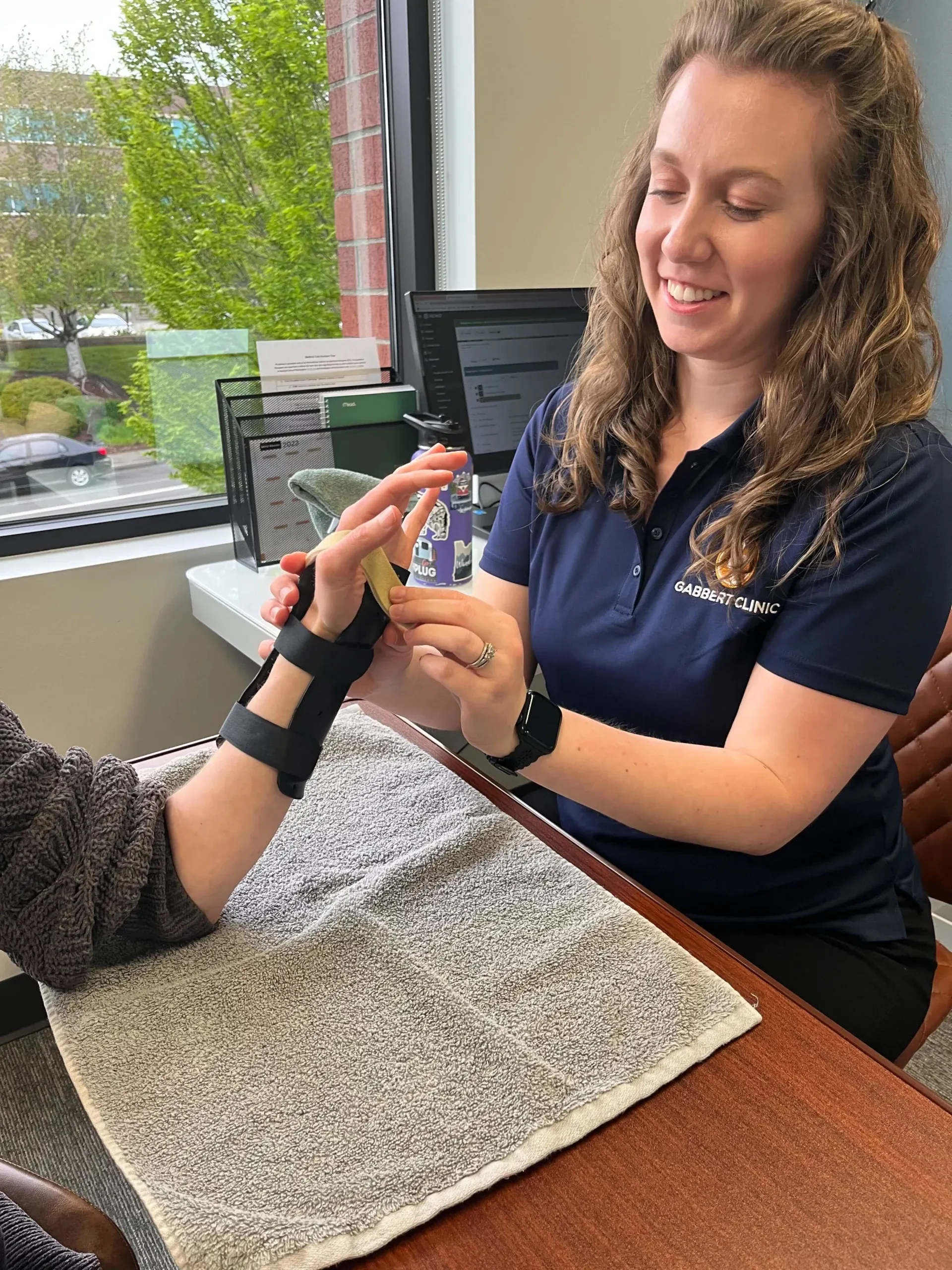Custom Molded Splints In Vancouver, WA

Custom Molded Splints: Providing Tailored Support for Optimal Hand Rehabilitation
When it comes to hand rehabilitation, one size does not fit all. Every individual’s hand condition is unique, requiring personalized treatment and support. That’s where custom molded splints come into play. These specially designed orthotic devices, crafted by certified hand therapists, offer unparalleled comfort and functionality while promoting effective healing and rehabilitation. In this comprehensive guide, we will explore the benefits and applications of custom molded splints, shedding light on why they are the preferred choice for hand therapy patients seeking optimal recovery and improved hand function.
Understanding Custom Molded Splints
Custom molded splints are precisely fitted orthotic devices that are individually crafted to meet the specific needs of each patient. Unlike off-the-shelf splints, which provide generic support, custom molded splints offer a tailored and anatomically accurate fit. At our clinic, we fabricate custom splints and prostheses using both thermoplastic custom molding as well as custom 3D printing. This level of customization ensures maximum comfort and functionality, allowing patients to engage in daily activities while receiving optimal support during the rehabilitation process.
The Advantages of Custom Molded Splints
Tailored Fit: Custom molded splints are created based on a detailed assessment of the patient’s hand anatomy, injury, or condition. By taking precise measurements and using advanced materials, certified hand therapists can create a splint that fits like a second skin, providing optimal support and alignment for the hand.
Comfort and Compliance: One of the challenges of traditional splints is their discomfort and lack of patient compliance. Custom molded splints are designed to address this issue. By ensuring a comfortable fit and accommodating the unique contours of the hand, patients are more likely to wear the splint consistently, leading to better outcomes and faster recovery.
Improved Functionality: Custom molded splints are created to support specific movements and functions required for hand rehabilitation. By providing the right balance of stability and mobility, these splints enable patients to perform rehabilitative exercises and daily activities with greater ease and precision.
Enhanced Healing: The customized support offered by these splints promotes proper alignment and immobilization, aiding the healing process. They also help reduce inflammation, prevent further injury, and provide the necessary protection to the affected area, accelerating recovery.
Versatility: Custom molded splints can be designed for various hand conditions, including fractures, sprains, arthritis, tendonitis, and nerve injuries. They can be adapted to accommodate changes in the healing process, ensuring ongoing support and flexibility as the patient progresses through their rehabilitation journey.
The Process of Creating Custom Molded Splints
Crafting custom molded splints involves a systematic process that begins with a thorough assessment by a certified hand therapist. Here’s an overview of the steps involved:
Assessment and Evaluation: The hand therapist carefully evaluates the patient’s hand condition, considering factors such as range of motion, strength, and any specific functional limitations. This assessment guides the therapist in determining the appropriate design and materials for the splint.
Precise Measurements: Using specialized tools and techniques, the therapist takes precise measurements of the hand and affected area. These measurements ensure an accurate fit and optimal support.
Orthotic Design: Based on the assessment and measurements, the therapist designs a custom orthotic device that addresses the patient’s specific needs. This includes determining the optimal shape, materials, and strapping techniques required for the splint.
Splint Fabrication: The therapist fabricates the splint using high-quality materials, such as thermoplastics, that can be molded and shaped to provide the desired support and comfort. These materials are heated and carefully molded to fit the patient’s hand anatomy accurately
Fitting and Adjustments: Once the splint is fabricated, the therapist ensures a proper fit by carefully applying and adjusting it on the patient’s hand. They make necessary modifications and refinements to guarantee optimal alignment and functionality.
Patient Education: A crucial step in the process is educating the patient on the proper use and care of the custom molded splint. The therapist provides detailed instructions on wearing the splint, performing exercises, and maintaining hygiene. This empowers the patient to actively participate in their rehabilitation process.
Ongoing Monitoring and Adjustments: Throughout the course of therapy, the therapist closely monitors the patient’s progress and makes any necessary adjustments to the splint. As the hand condition improves or changes, modifications may be required to ensure continued effectiveness and support.
Applications of Custom Molded Splints
Custom molded splints offer versatile solutions for various hand conditions and injuries. Some common applications include:
Fracture Management: Custom splints provide support and immobilization for fractures, aiding in the healing process and preventing further damage.
Tendon and Ligament Injuries: These splints can be designed to protect and stabilize injured tendons and ligaments, promoting proper healing and preventing excessive movement.
Arthritis Management: Custom splints can alleviate pain and reduce inflammation associated with arthritis by providing joint support and minimizing strain on affected areas.
Nerve Injury Rehabilitation: Splints designed for nerve injuries help maintain proper positioning and protect sensitive nerves during the healing process, facilitating nerve regeneration.
Post-Surgical Support: Custom molded splints aid in post-operative recovery by providing support, reducing swelling, and promoting optimal healing after hand surgeries.
The Role of a Certified Hand Therapist
Certified hand therapists play a vital role in the creation and utilization of custom molded splints. Their specialized training and expertise enable them to assess, design, and fabricate these orthotic devices with precision. Moreover, they work closely with patients, providing guidance, support, and ongoing monitoring to ensure the splints effectively contribute to the rehabilitation process.
Certified hand therapists are equipped with extensive knowledge of hand anatomy, biomechanics, and rehabilitation techniques. Their collaborative approach involves tailoring treatment plans that integrate custom molded splints alongside therapeutic exercises, manual techniques, and patient education to optimize outcomes and facilitate a swift return to normal function.
What Does It Mean To Be Saebo Certified?
At our Occupational Therapy Clinic, we take pride in being “Saebo Certified,” a designation that underscores our commitment to exceptional care in the field of neurological rehabilitation. Our occupational therapists have received specialized training in employing Saebo’s state-of-the-art rehabilitation products, which are designed to aid individuals recovering from neurological events like strokes or brain injuries. This Saebo Certification endows our team with a deeper understanding and proficiency in using Saebo’s innovative devices, specifically in the context of custom molded splints.
For our clients, this means they receive bespoke rehabilitation solutions, crafted to enhance motor recovery and improve quality of life. Our expertise in Saebo’s methodologies allows us to create personalized therapy plans that incorporate these advanced techniques. This approach is particularly beneficial for clients needing custom-molded splints, as it ensures they are not just receiving a device, but a comprehensive, tailored therapy regime. Our Saebo Certified therapists are adept at integrating these devices into effective treatment plans, ensuring that each client’s journey toward recovery is supported by the most innovative and effective care available.
Get the Help You Deserve
Custom molded splints revolutionize the field of hand rehabilitation by offering personalized support and functionality. These orthotic devices, created by certified hand therapists, provide tailored solutions that address the unique needs of each patient. With their precise fit, comfort, and versatility, custom molded splints enhance healing, promote optimal hand function, and empower individuals to regain their independence.
If you are seeking effective hand rehabilitation, consider consulting a certified hand therapist who can guide you through the process of obtaining a custom molded splint. Embrace the benefits of tailored support and embark on a journey towards a stronger, healthier, and more functional hand.


